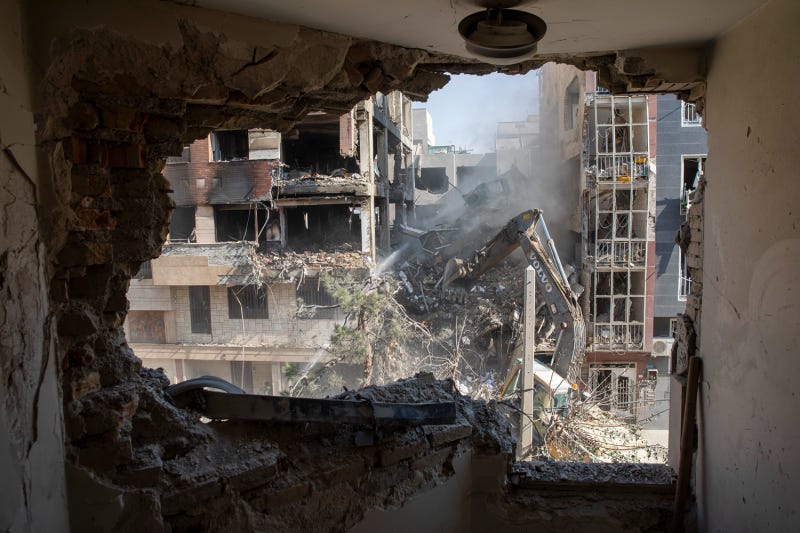
The unprecedented Israeli strikes on Iran last Friday have catapulted the entire Middle East to the brink of war.
Although Israeli officials claimed the strikes were aimed at dismantling Iran’s nuclear program, they also resulted in the deaths of several key Iranian officials.
These included Major General Hossein Salami, Major General Mohammad Bagheri, Ali Shamkhani, and Amir Ali Hajizadeh. These men not only had close ties to Supreme Leader Ayatollah Ali Khamenei but also played pivotal roles in shaping Iran’s regional strategy, particularly toward Israel.
Salami, in particular, was one of the most powerful figures in Iran. As head of the Islamic Revolutionary Guard Corps (IRGC) since 2019, he oversaw Iran’s proxy network across the Middle East, including support for groups like Hezbollah in Lebanon, Hamas in Gaza, and the Houthis in Yemen. He was also believed to have orchestrated Iran’s drone and missile attacks on Israel in April and October of last year. CNN analyst Beth Sanner compared Salami’s killing to the removal of the U.S. Chairman of the Joint Chiefs of Staff.
Israeli officials have long argued that Iran poses an existential threat to the state of Israel, citing Tehran’s public calls for Israel’s destruction, its sponsorship of militant groups, and its nuclear ambitions. In this context, the strikes have been framed by the Israeli government as preemptive self-defense—necessary to prevent Iran from gaining a military advantage that could be used against Israeli civilians.
Following the strikes, Israeli Prime Minister Benjamin Netanyahu addressed the Iranian people directly in a press conference, urging them to rise up against the Islamic Republic.
“The time has come for the Iranian people to unite around its flag and its historic legacy, by standing up for your freedom from the evil and oppressive regime,” Netanyahu declared.
His message signaled not just a military objective but also a political one—pointing to a deeper aim: regime change.
Netanyahu has long advocated for reshaping the Middle East's balance of power through a more assertive policy stance—an idea dating back to his early political career.
In 1996, American neoconservatives including Richard Perle and Douglas Feith drafted a policy document titled “A Clean Break: A New Strategy for Securing the Realm” for Netanyahu. The document proposed abandoning the Oslo Accords—a series of peace agreements signed with the Palestinians in 1993—and instead pursuing security through a U.S.-backed regime change strategy targeting adversarial states like Iraq and Syria.
Perle and Feith later joined the George W. Bush administration, where they played key roles in advocating for the Iraq War—an intervention Netanyahu supported in a testimony before the U.S. Congress in 2002.
Since then, the ideas behind the Clean Break document have evolved into a critical foreign policy doctrine for Netanyahu. He has consistently urged Washington to adopt a more confrontational foreign policy towards Israel’s regional enemies—backing sanctions, opposition movements, and in some cases, military intervention—such as Sudan and Syria.
But Iran has long been the ultimate target of this vision.
Given Netanyahu’s close relationship with U.S. President Donald Trump, he likely hoped for White House support in confronting Tehran. However, Trump’s growing alignment with the Gulf states—which generally oppose regime change in Iran—and his more recent efforts to renegotiate a nuclear deal may have left Netanyahu feeling isolated diplomatically.
In that light, the recent strikes may reflect an Israeli decision to act unilaterally, driven by frustration with diplomacy, a sense of strategic urgency, and the perception that Iran is vulnerable due to domestic unrest and the weakening of its regional alliances.
However, recent history has shown that regime change efforts in the Middle East rarely led to stability. The U.S. interventions in Iraq and Libya—both justified by similar goals—resulted in prolonged conflict, power vacuums, and humanitarian crises.
Whether the Israeli strikes will succeed in weakening the Islamic Republic or merely inflame a wider regional war remains to be seen.
For now, the region—and the world—holds its breath as tensions between Israel and Iran continue to escalate.




